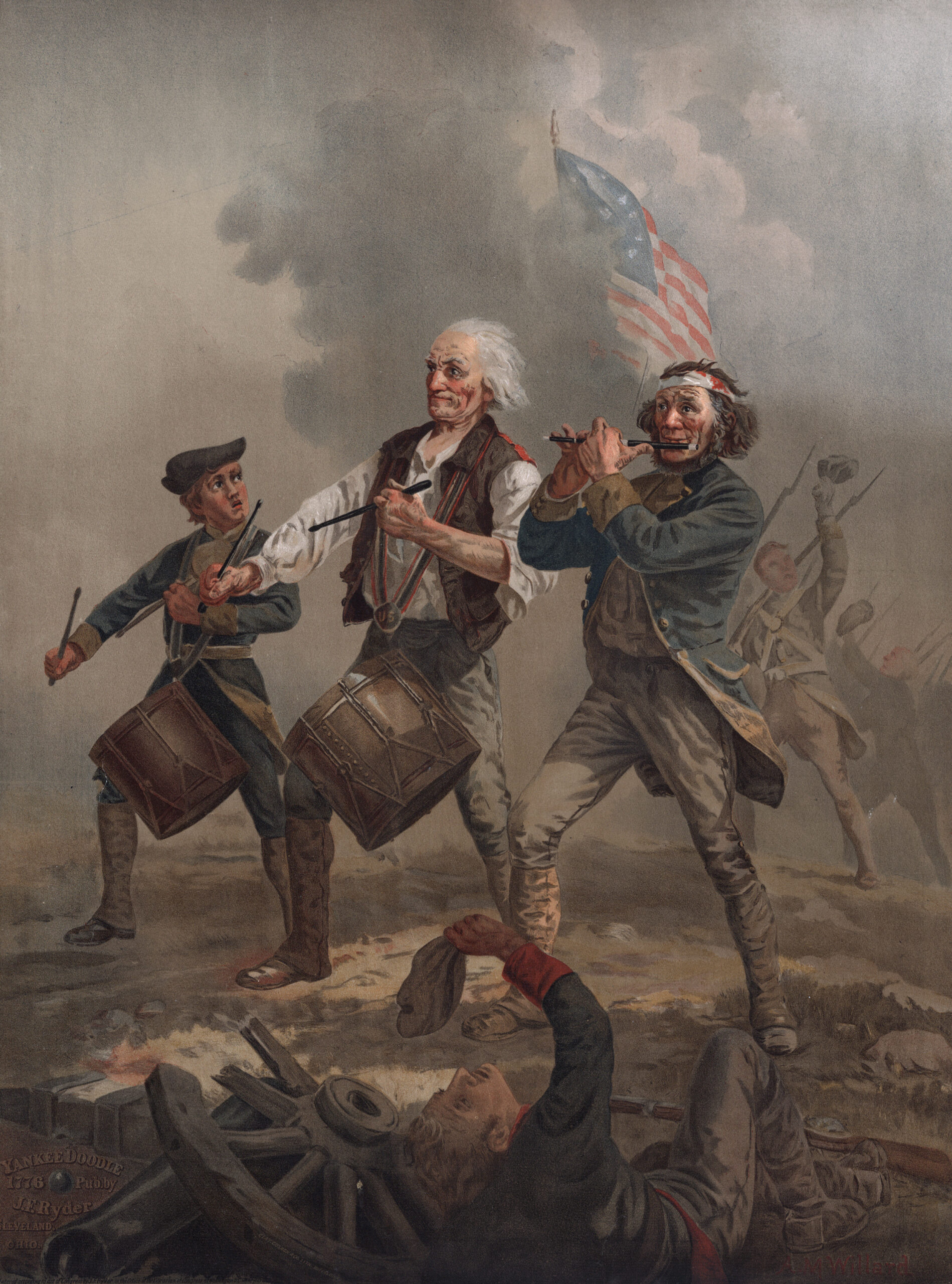Anglicans and the American Revolution
Revolution and Anglican Conflicts
By the time of the Revolution, most historians estimate that the majority of the white population in the colonies at the time of the Revolution were native-born. Some estimates suggest a range from 60% to 80% native-born, with the remaining 20% to 40% being immigrants or descendants of recent immigrants. In five of the thirteen colonies the Anglican Church was the legally established religion in the 1750s and 1760s, enjoying the protection of the state and supported by tax money. The Anglican hierarchical structure with bishops as leaders set them apart from other American Protestant denominations which were congregational, i.e., individual churches governed their own affairs without interference from any central authority.
American Anglicans in the tumultuous years leading up to and during the Revolutionary War found themselves caught in a moral squeeze, balancing their loyalty to the Church of England tied to the British Crown and their sense of American identity and desire for independence. Many Anglicans considered rebellion against the Crown sacrilege, a violation of both God and King:
- Joseph Galloway (1731-1803), a former speaker of the Pennsylvania Assembly and close friend of Benjamin Franklin, opposed the Revolution and fled to England in 1778. He believed that the Revolution was a religious quarrel, caused by Presbyterians and Congregationalists whose “principles of religion and polity [were] equally averse to those of the established Church and Government.”
- Jonathan Odell (1737-1818), rector at Burlington, New Jersey, became a confidant of Benedict Arnold and scourged the Patriots with a sharp, satirical pen.
- Samuel Seabury of New York wrote “Will you submit to the high and mighty delegates in Grand Continental Congress assembled! Do as you will, but by Him who made me, I will not! No, if I must be enslaved, let it be by a King at least, and not by a parsel [sic] of upstarts, lawless committeemen.” Seabury became the first American Episcopal bishop in 1784.
- Johnathan Boucher, rector of the Annapolis Church in Maryland, wrote a pamphlet questioning “whether loyalty to the State could exist when there is no loyalty to Church.”
The social and economic positions of Anglicans were often intertwined with the English Crown and church, further strengthening their ties to the existing order. Yet, many witnessed firsthand the injustices inflicted by the Crown and resonated with the ideals of liberty and self-government espoused by the Patriots. Some Anglicans remained staunch Loyalists, clinging to their traditional beliefs and siding with the King. Others actively embraced the Revolution, even sacrificing their positions and risking excommunication from their beloved church. Still others found themselves paralyzed by indecision, caught in a painful limbo between faith and freedom,
Anglican Patriots
George Washington, the leader of the Continental Army and the first President of the United State, was a devoted member of the Anglican Church. He served as a churchwarden for three terms, helping to care for the poor. Washington’s church attendance varied throughout his life, with his attendance becoming sporadic for periods of time and then picking up again during his presidency. One of his former pastor at stated that “I never knew so constant an attendant at church as Washington.”
Anglican minister Peter Muhlenberg joined the army after delivering his last sermon to his congregation in Woodstock, Virginia, in January 1776, saying: “There is a time for all things, a time to preach and a time to pray, but those times have passed away. There is a time to fight, and that time has now come.”
John Jay, a Founding Father and the First Chief Justice of the United States Supreme Court, was an openly religious man, initially Anglican, later Episcopalian and, when that wasn’t available, Presbyterian. He was a leader of his parish church and of the national church; and he was a president of the American Bible Society.
There were many more Anglican patriots, including 34 of 56 attendees at the Constitutional Convention who signed of the Declaration of Independence and the nations’ 4th and 5th Presidents, James Madison and James Monroe. The decision to honor one’s oath to the King and Church or pursue national and personal freedom was difficult for most Anglicans, a crisis of conscience few people are required to face. In reviewing the actions of those involved. we need to appreciate the difficulty they faced.

